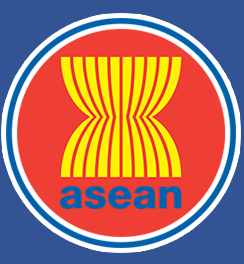ASEAN Journal on Science and Technology for Development
Special Issues
Special Issues in the ASEAN Journal on Science and Technology for Development (AJSTD) are curated collections of papers focused on topics of special interest, led by subject experts who serve as Guest Editors. These issues enhance the discoverability and citation of articles by clustering them around specific themes, making it easier for scholars to navigate through the journal's content. Special Issues follow the same rigorous peer review process as regular articles and are published within regular issues, labeled as part of the Special Issue collection.
General Guidelines
- AJSTD will publish one Special Issue per year, focusing on a high-impact research topic within the journal’s scope.
- Each Special Issue must maintain the same academic rigour and quality standards as regular issues.
- The Article Processing Charges (APC) for each accepted article is set at 150 SGD. Please note that any payment made via VISA will incur an additional 10% processing fee.
- Payment must be made upon acceptance of the article, prior to publication.
- A minimum of 10 articles and a maximum of 20 articles are required for a Special Issue.
- Each Special Issue may include a free Editorial written by the Guest Editors as an introduction to the issue.
- All articles, including the Editorial, for Special Issues must be submitted online through the Editorial Manager platform of AJSTD.
Responsibilities of Guest Editors
- Guest Editors must be experts on the topic of the Special Issue.
- They are responsible for ensuring that all content aligns with both the specific scope of the Special Issue and the broader scope of AJSTD.
- They propose the topic and title for the Special Issue, ensuring relevance to AJSTD’s scope.
- They invite authors and solicit high-quality submissions from experts in the field.
- They manage the peer review process with impartiality, ensuring rigorous evaluation of all submissions.
- They work closely with AJSTD’s Editor-in-Chief and Editorial Team to meet deadlines and ensure smooth publication.
- Guest Editors will collaborate with the AJSTD Editorial Team and assign one of the Editors to oversee the search for reviewers, following the journal’s established practices.
- They address author queries and facilitate communication between authors, reviewers, and the editorial team.
- Guest Editors cannot handle or make decisions on manuscripts they have authored or co-authored.
- They must disclose any potential conflicts of interest related to submitted manuscripts.
- They may write a free Editorial summarising the theme, scope, and significance of the Special Issue.
Financial Matters
- APC payments will be collected by the AJSTD Account at Universiti Brunei Darussalam (UBD).
- Payments can be made via bank transfer or other approved methods outlined in the acceptance letter.
- APC revenue will be used for journal operations, including peer review management, editorial support, and publication costs.
- A detailed financial report for each Special Issue will be maintained to ensure accountability.
Quality and Ethical Standards
- All articles must undergo rigorous peer review according to the policy of the AJSTD to ensure originality, significance, and adherence to ethical standards.
- Submissions must comply with AJSTD’s plagiarism policy.
- Authors must adhere to AJSTD’s ethical guidelines regarding authorship, data integrity, and conflict of interest disclosures.
- Special Issues will be promoted through AJSTD’s website, newsletters, and social media channels to enhance visibility and impact.
- Special Issues will cover diverse and emerging areas of research to maintain AJSTD’s relevance and appeal in the academic community.
- Proposals must include a clear title, summary, and keywords that align with AJSTD’s scope.
- Guest Editors should provide a list of potential contributors and a plan for promoting the Special Issue.
- If the minimum number of high-quality articles is not met, AJSTD reserves the right to cancel the Special Issue. In such cases, accepted papers may be considered for publication in a regular issue, subject to the consent of the authors and Guest Editors.

